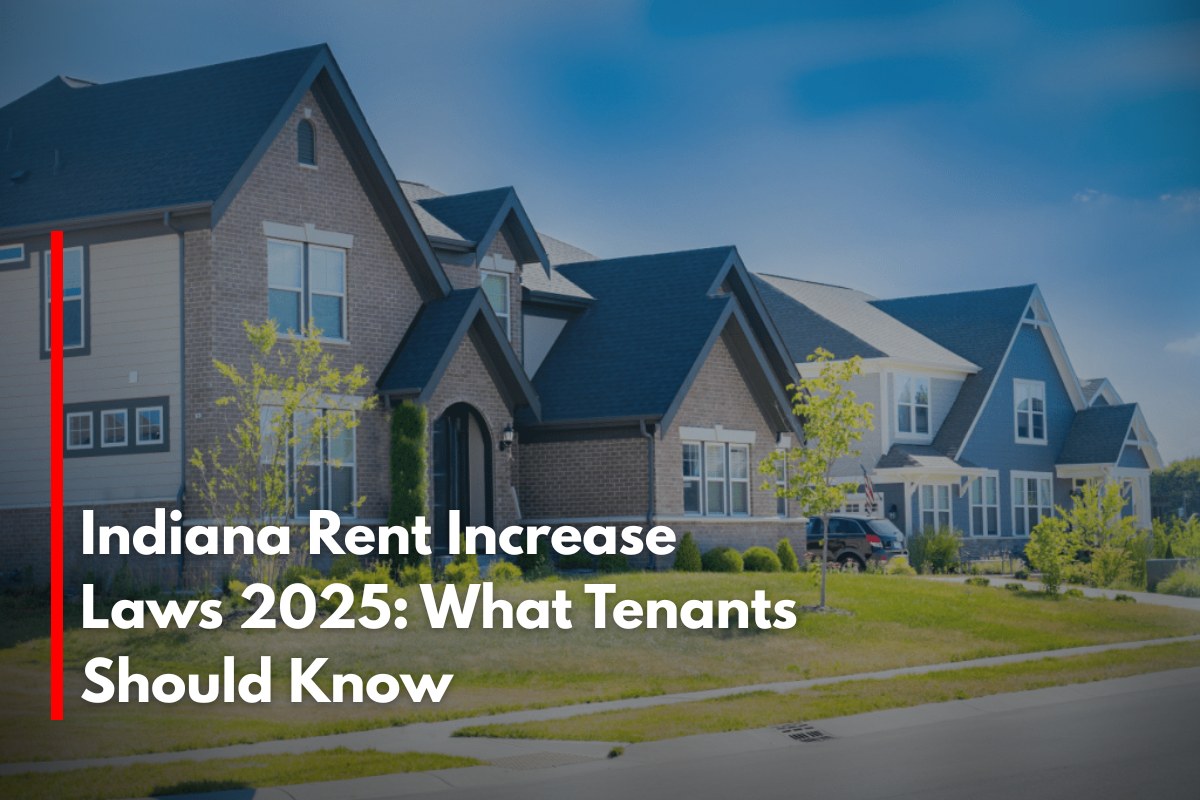As of 2025, Indiana remains one of the more landlord-friendly states in the U.S., but changes in rent increase laws have important implications for tenants. Here’s what renters need to know to navigate the evolving landscape of rental regulations effectively.
No Statewide Rent Control—But New Rules on the Horizon
Historically, Indiana has not imposed statewide rent control, allowing landlords to set rental prices according to market forces without legal limits on annual rent hikes. Until recently, most cities, including Indianapolis, did not have any local rent control ordinances, which meant landlords could raise rent by any amount when leases were renewed, provided they gave proper notice.
However, in 2025, Indiana lawmakers introduced House Bill 1162 (effective July 1, 2025), which aims to temper the most dramatic rent increases across the state. Under this law, landlords are prohibited from increasing rent by more than the lesser of:
Additionally, landlords cannot raise rent more than twice within a 12-month period for the same rental unit, further protecting tenants from sudden, multiple increases over a short time.
Required Notice for Rent Increases
According to Indiana law, landlords must give tenants at least 30 days’ written notice before any rent increase takes effect for month-to-month leases. For fixed-term leases (such as a one-year lease), landlords generally have to wait until the lease expires to raise the rent, unless the current lease specifically allows for mid-term increases.
In most cases, notice periods for rent increases on fixed-term leases should also be stipulated in the lease agreement—the most common standard being 90 days.
Written notice should clearly state the new rental amount and the effective date. Verbal or informal notices are not legally valid.
Tenant Protections Against Illegal Rent Increases
Even in Indiana’s landlord-friendly legal environment, there are critical federal and state protections:
Prohibited Discrimination: Landlords may not raise rent based on a tenant’s race, national origin, religion, sex, familial status, or disability, as protected by the federal Fair Housing Act.
No Retaliation: Rent increases in response to a tenant’s lawful complaint about property conditions or code violations are prohibited under retaliation statutes.
Local Ordinances: While rare, some cities (such as Bloomington) have adopted specific rules that may further restrict rent increases or set unique notice requirements. Always check local regulations.
Tenants who believe their rent increase is retaliatory or discriminatory can file a complaint with the Indiana Civil Rights Commission or seek help from organizations such as Indiana Legal Services.
Practical Steps for Tenants
Review Your Lease: Check your current agreement to understand when and how your landlord can raise the rent.
Document Communications: Save all written notices and communications regarding rent increases.
Seek Legal Assistance: If you receive an excessive or suspect rent increase, especially one that seems retaliatory or discriminatory, contact local tenant advocacy organizations or legal aid.
Stay Informed: Rental laws can change. Monitor updates from the Indiana General Assembly and local government for new ordinances or statewide amendments that may affect your rights.
For 2025, Indiana tenants should be aware of a significant change: rent increases are now capped at the lesser of 5% plus the cost-of-living increase or 10% in a 12-month period, with a maximum of two rental increases per year. Notice requirements remain in force, with at least 30 days’ notice for month-to-month leases and end-of-term increases for fixed leases.
Tenants are shielded by anti-discrimination and anti-retaliation laws and should always review local ordinances and state updates to fully understand their rights. Being proactive, informed, and vigilant is the best way for Indiana renters to protect themselves in 2025.
Sources
[1] https://www.hemlane.com/resources/indiana-rent-control-laws/
[2] https://www.steadily.com/blog/rent-increase-laws-regulations-indiana
[3] https://www.steadily.com/blog/rent-increase-laws-regulations-indianapolis-in
[4] https://legiscan.com/IN/text/HB1162/id/3040249/Indiana-2025-HB1162-Introduced.pdf
[5] https://ipropertymanagement.com/laws/rent-control











